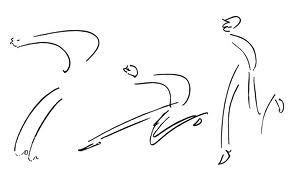Jeffrey Eugenides advises young writers:
‘I’m winding down now. They tell me there’s going to be a party after this. I don’t want to keep you from your rightful fun. In closing, let me say one more thing about Mr. Kafka. When Kafka was diagnosed with tuberculosis, in Berlin, he reacted at first with a serenity amounting almost to relief. As his health deteriorated, he became more fearful: “What I have playacted is really going to happen,” he wrote in a letter to a friend. “I have not bought myself off by my writing. I died my whole life and now I will really die.” To die your whole life. Despite the morbidity, I can’t think of a better definition of the writing life. There’s something about writing that demands a leave-taking, an abandonment of the world, paradoxically, in order to see it clearly. This retreat has to be accomplished without severing the vital connection to the world, and to people, that feeds the imagination. It’s a difficult balance. And here is where these ruminations about writing touch on morality. The same constraints to writing well are also constraints to living fully. Not to be a slave to fashion or commerce, not to succumb to arid self-censorship, not to bow to popular opinion—what is all that but a description of the educated, enlightened life?’
(Read the complete article here.)
I respectfully disagree with Mr. Eugenides. I stopped dying the moment I started writing, and I’m not referring to some possible posthumous fame or literary immortality.
Literature doesn’t deny the darkness but it’s always a way out of the darkness, also for the author, also for Kafka. (The way out can be a cul-de-sac, but better a cul-de-sac than no exit at all.)
As Kundera rightly pointed out: Kafka didn’t suffer for us, he amused himself for us.
